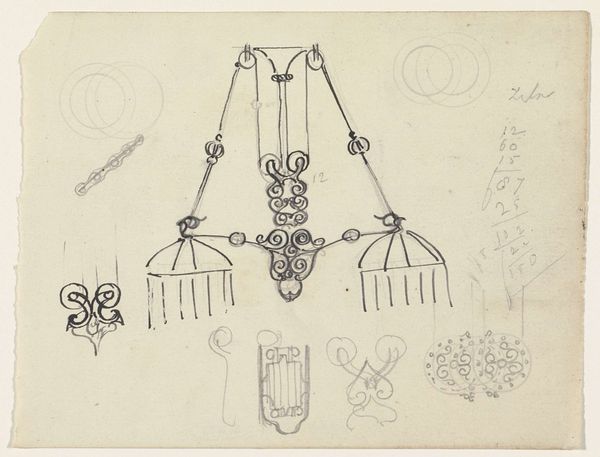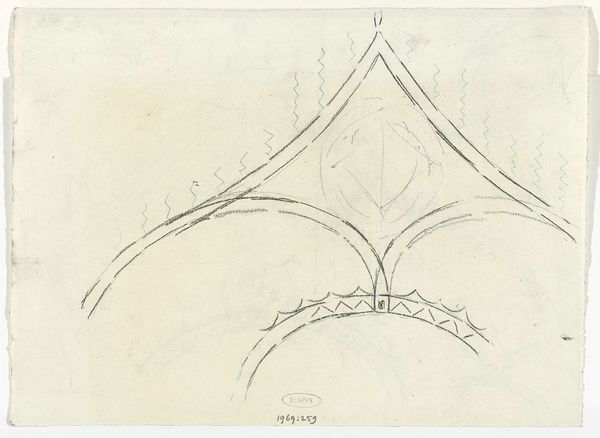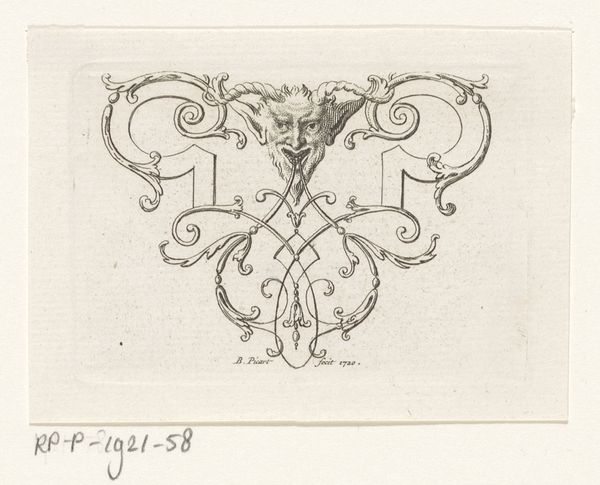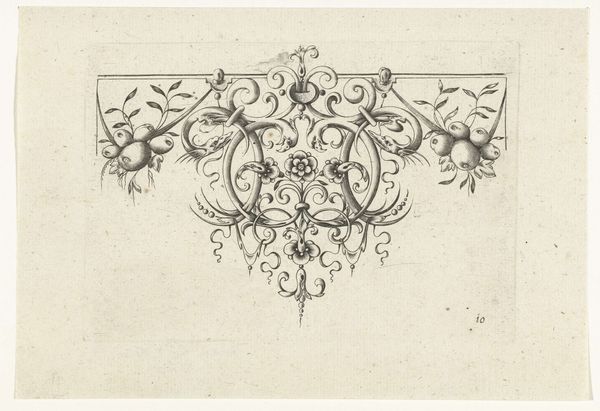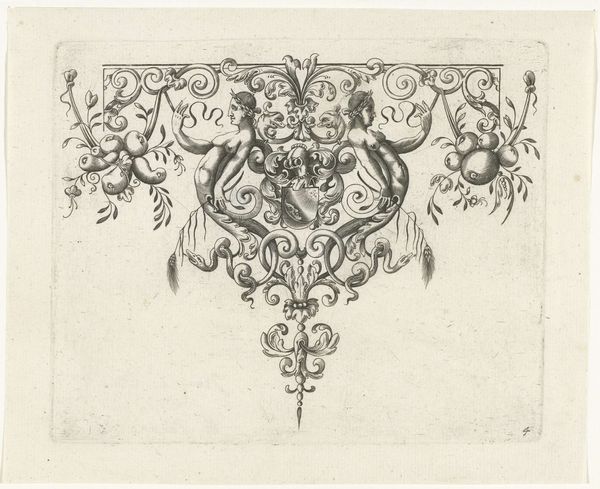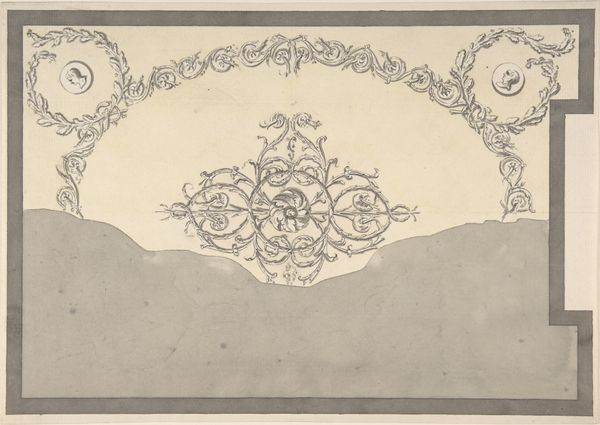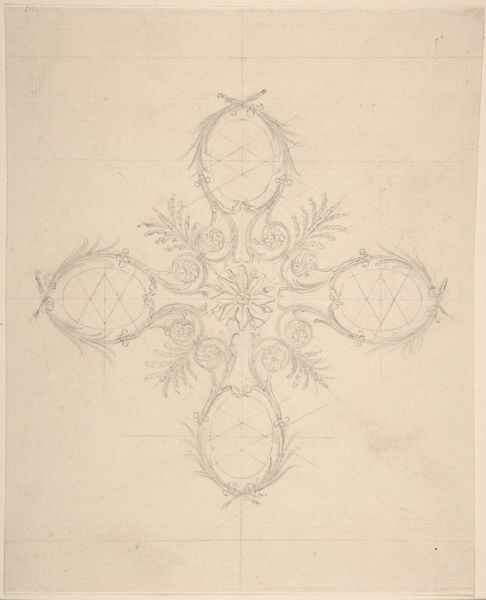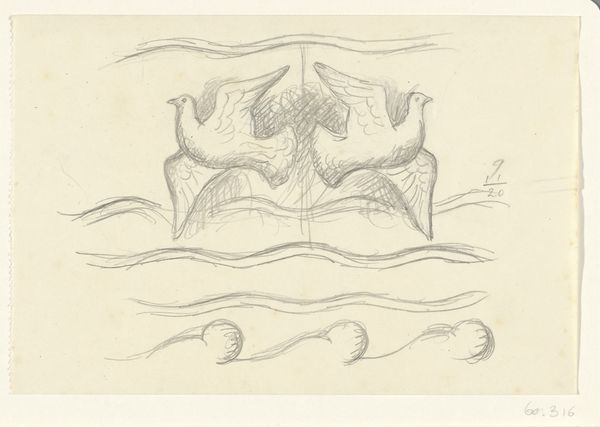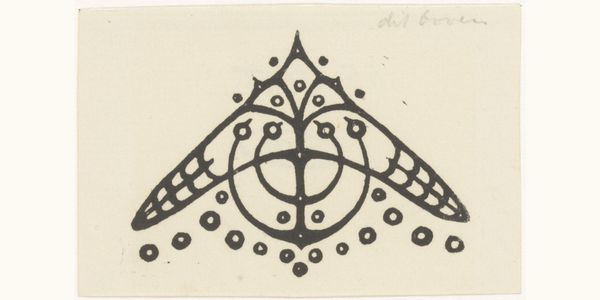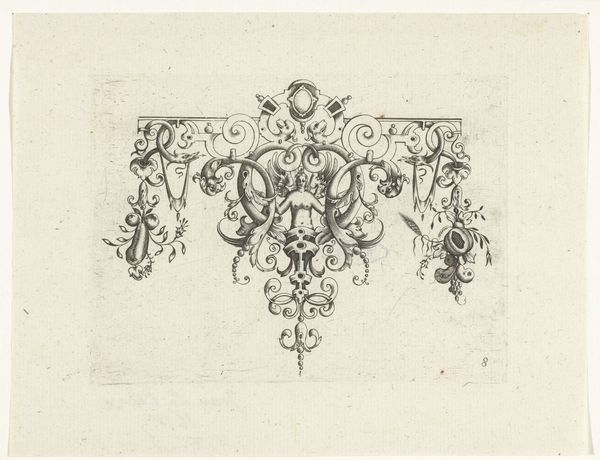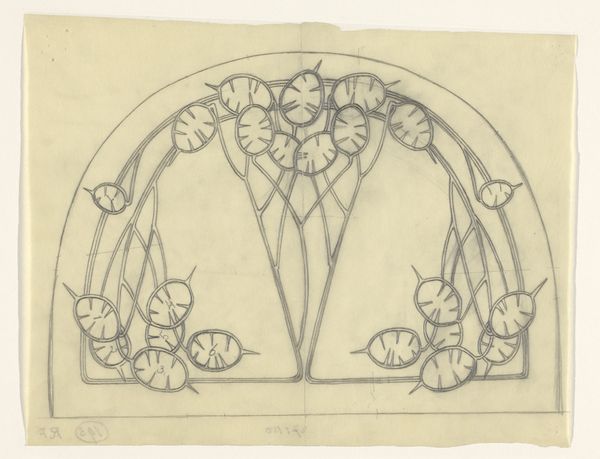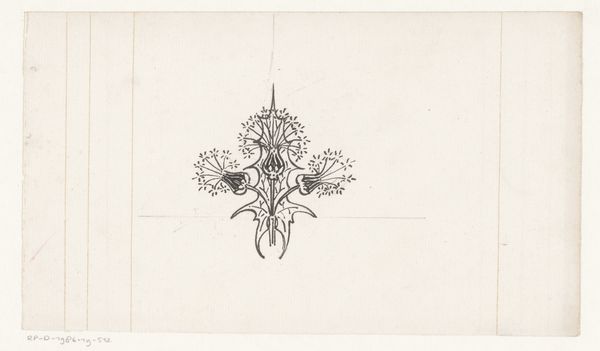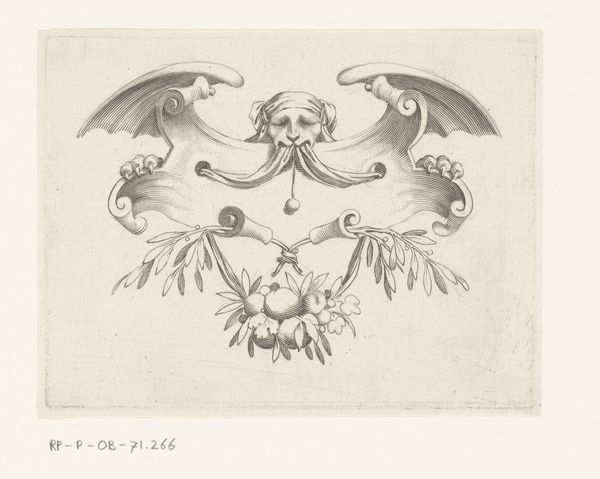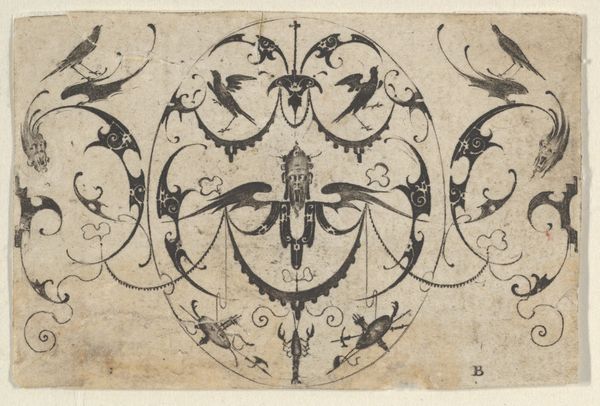
drawing, pencil
#
drawing
#
art-nouveau
#
pen illustration
#
pen sketch
#
form
#
personal sketchbook
#
ink drawing experimentation
#
geometric
#
pen-ink sketch
#
pencil
#
line
#
pen work
#
sketchbook drawing
#
storyboard and sketchbook work
#
sketchbook art
#
initial sketch
Dimensions: height 212 mm, width 291 mm
Copyright: Rijks Museum: Open Domain
Editor: Here we have Gerrit Willem Dijsselhof's "Ontwerpen voor ornamenten," dating from 1876 to 1924, rendered in pencil and ink. There's a fascinating fragility to the line work; it feels so preliminary and revealing. What's your perspective on this, particularly within the context of materials and process? Curator: I'm drawn to this work as a document of labor. It reveals the artist's process, the repetition, the testing of forms. Consider the social context: this was a period where "high art" was becoming increasingly distinct from craft, but Dijsselhof seems to deliberately blur those lines. The materials themselves - humble pencil and ink – speak to accessibility and the democratisation of design. How might these sketches translate into marketable commodities? Editor: That's interesting. It's almost as if he's making visible the usually invisible process of creation. The repetitious zigzags do suggest a very hands-on, almost meditative activity. Do you think the 'preliminary' quality intentionally challenges our notion of a finished artwork? Curator: Precisely! It makes me wonder about the intended final product and its relationship to the sketches: Is it furniture? Jewelry? These are designs destined to be translated into different materials, worked on by different hands. The drawing itself is merely a step in a larger chain of production, raising the question, where does the artistic value truly lie? And what kind of labour might bring this drawing to life? Editor: So, looking at it this way, we move beyond admiring a singular genius and start considering a broader network of makers and materials involved. Thank you; that shifted my perspective! Curator: My pleasure. It encourages a more critical view of how we consume art and design, focusing less on the artist’s aura and more on the means of production itself.
Comments
No comments
Be the first to comment and join the conversation on the ultimate creative platform.
